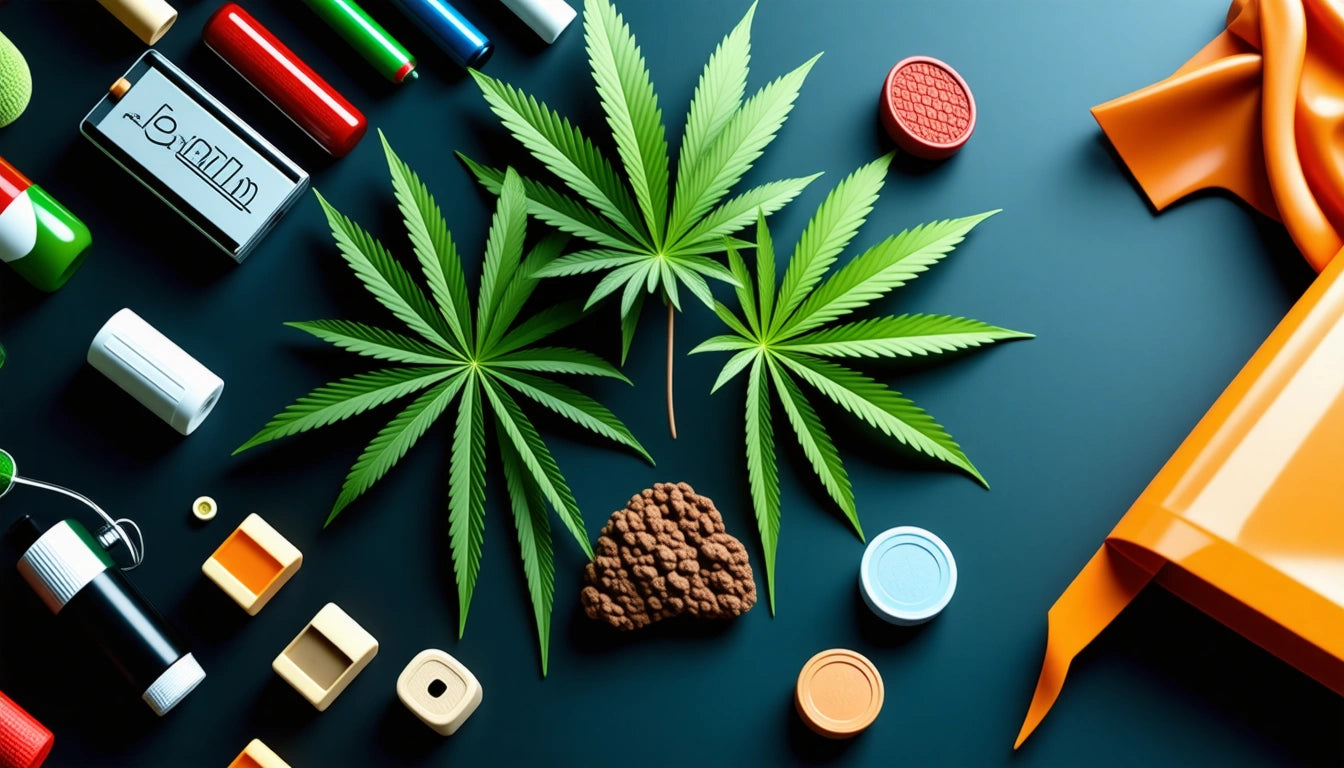Table of Contents
The Impact of Cannabis on Bipolar Disorder: Benefits, Risks, and Considerations
Bipolar disorder affects approximately 2.8% of adults in the United States, characterized by extreme mood swings that include emotional highs (mania or hypomania) and lows (depression). As cannabis becomes more accessible, many individuals with bipolar disorder question whether it might help manage their symptoms. The relationship between cannabis and bipolar disorder is complex and multifaceted, requiring careful consideration of both potential benefits and risks.
Understanding Bipolar Disorder
Bipolar disorder is a chronic mental health condition that causes dramatic shifts in a person's mood, energy, and ability to think clearly. These mood episodes are categorized as manic, hypomanic, or depressive and can last for days to months at a time. Traditional treatments typically include mood stabilizers, antipsychotics, antidepressants, psychotherapy, and lifestyle management.
The exact cause of bipolar disorder remains unknown, but factors like genetics, brain structure, and environmental triggers all play roles. The condition involves dysregulation of neurotransmitters, including dopamine, serotonin, and norepinephrine, which cannabis can potentially influence.
Potential Benefits of Cannabis for Bipolar Disorder
Some individuals with bipolar disorder report that cannabis helps alleviate certain symptoms. These potential benefits include:
- Mood stabilization during mild mood fluctuations
- Reduction in anxiety and racing thoughts
- Improved sleep during insomnia phases
- Decreased agitation during manic episodes
- Relief from depressive symptoms
The endocannabinoid system, which cannabis interacts with, plays a role in regulating mood, similar to how it affects anxiety as discussed in our article about the relationship between weed and anxiety. CBD, in particular, has shown promise for its anti-anxiety and antipsychotic properties, which could theoretically benefit some bipolar symptoms.
Risks of Cannabis Use in Bipolar Disorder
Despite anecdotal reports of benefits, cannabis use carries significant risks for people with bipolar disorder:
Triggering or Worsening Manic Episodes
THC can induce psychosis-like symptoms in vulnerable individuals. For those wondering "can weed cause mania," research suggests that cannabis use is associated with increased manic symptoms and earlier onset of manic episodes in bipolar patients.
Medication Interactions
Cannabis may interact with commonly prescribed medications for bipolar disorder, potentially reducing their effectiveness or increasing side effects. When considering cannabis use, patients should always store their medications properly in secure containers with child-resistant caps to prevent accidental ingestion, especially if children are present in the home.
Cyclical Pattern Disruption
Regular cannabis use may disrupt the natural cycle of bipolar disorder, making it harder for healthcare providers to assess true symptom patterns and medication effectiveness.
Current Research Findings
Research on cannabis and bipolar disorder presents mixed findings:
A 2015 review published in the Journal of Affective Disorders found that some patients reported short-term relief of bipolar symptoms with cannabis use. However, longitudinal studies indicate that continued cannabis use is associated with more severe manic symptoms, greater risk of psychotic symptoms, and poorer treatment outcomes.
Similar to findings about marijuana and depression, the relationship appears to be bidirectional. While cannabis might temporarily alleviate some symptoms, long-term use may exacerbate the condition.
Important Considerations for Cannabis Usage
For those with bipolar disorder who are considering using cannabis, several factors should be weighed:
Strain and Composition
CBD-dominant strains with minimal THC may pose fewer risks than high-THC varieties. The question of "best weed for bipolar" has no definitive answer, but minimizing THC exposure is generally advised.
Frequency and Amount
Occasional use may have different effects than regular, heavy consumption. Moderation is key if cannabis is used at all.
Individual Sensitivity
Responses to cannabis vary widely among individuals with bipolar disorder. What helps one person might trigger symptoms in another.
Cannabis can also impact perception and mood stability, as detailed in our article about how weed affects mood and personality.
Patient Experiences and Anecdotal Evidence
Patient reports vary significantly. Some individuals with bipolar disorder claim cannabis helps them maintain stability and manage symptoms better than conventional medications alone. Others report that cannabis use precipitated severe manic episodes or psychotic symptoms.
These conflicting experiences highlight the need for individualized approaches and careful monitoring. For those asking "does weed help with bipolar disorder," the answer depends on numerous factors including individual biochemistry, bipolar subtype, and concurrent treatments.
Practical Guidance for Patients and Healthcare Providers
If you have bipolar disorder and are considering cannabis use, consider these recommendations:
- Consult with mental health professionals before trying cannabis
- Start with CBD-dominant products if approved by your doctor
- Maintain open communication with your healthcare team about all substance use
- Monitor mood changes carefully and keep a symptom journal
- Never substitute cannabis for prescribed medications without medical guidance
- Be aware of legal considerations in your jurisdiction
Healthcare providers should approach the topic without judgment, acknowledging that many patients may be using cannabis with or without disclosure. Education about potential risks, particularly regarding THC and mania, is essential.
The relationship between cannabis and bipolar disorder shares similarities with its effects on other neurological conditions, such as those discussed in our article on cannabis for epilepsy management.
While current evidence suggests caution, ongoing research may provide more definitive guidance in the future. Until then, a conservative, medically-supervised approach remains the safest option for individuals with bipolar disorder who are considering cannabis use.











Leave a comment
All comments are moderated before being published.
This site is protected by hCaptcha and the hCaptcha Privacy Policy and Terms of Service apply.